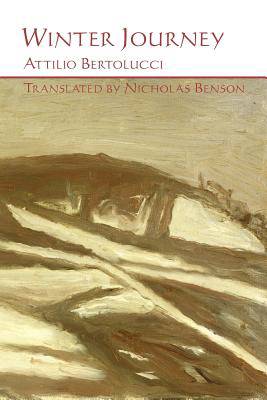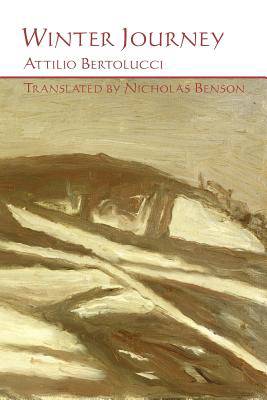
- Retrait gratuit dans votre magasin Club
- 7.000.000 titres dans notre catalogue
- Payer en toute sécurité
- Toujours un magasin près de chez vous
- Retrait gratuit dans votre magasin Club
- 7.000.000 titres dans notre catalogue
- Payer en toute sécurité
- Toujours un magasin près de chez vous
Description
Translated here for the first time into English by Nicholas Benson, the poems of Attilio Bertolucci's WINTER JOURNEY (Viaggio d'inverno) direct our gaze on communal life and health in moments of deceptive calm. Through a careful accounting of the situation of poetry-of the places and events that give rise to poetic motives and sensibilities- WINTER JOURNEY evolves an account of parallel illnesses: the author's nervous anxiety, and the broader afflictions of an emergent consumer society. Increasing social proximity serves mainly to illuminate a persistent isolation, relieved only and tenuously by the bonds of family and friendship. In a country then recovering from the effects of nationalism, it is significant that a major poet would avoid the pitfalls of populism and paternalism, just as his writing avoids antagonism and aestheticism. Bertolucci's meditations on the effects of the Fascist ventennio can be read as a subtle critique of such divisions, which weakened resistance to the regime and enabled the country's later fragmentation. There are other precedents in Italian poetry for rejecting the florid rhetoric that seemed to overspill the nineteenth century; Bertolucci's enduring contribution may reside in his open examination of what remains possible if social and personal beliefs, typically connected to an idealized future or past, are extinguished in the voracious present of the inquiring self. About the Author Attilio Bertolucci (Parma 1911 - Rome 2000), one of Italy's greatest twentieth-century poets, was also an influential editor, essayist, and translator. Among Bertolucci's many honors was the 1991 Eugenio Montale prize, considered the highest award in Italian poetry.
Spécifications
Parties prenantes
- Auteur(s) :
- Editeur:
Contenu
- Nombre de pages :
- 240
- Langue:
- Anglais
- Collection :
Caractéristiques
- EAN:
- 9781932559057
- Date de parution :
- 05-11-05
- Format:
- Livre broché
- Format numérique:
- Trade paperback (VS)
- Dimensions :
- 152 mm x 229 mm
- Poids :
- 358 g







